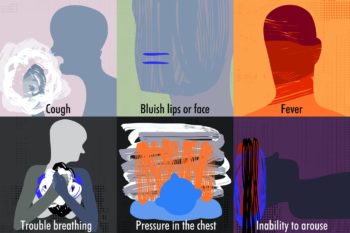Clinical Negligence Scheme for Covid-19. Can You Claim?

Did you know that you can claim for compensation if you have suffered pain that could have been prevented or have lost a loved one due to clinical negligence?
As the Coronavirus continues to spread, healthcare workers are working all round the clock to deal with the pandemic.
However, since mistakes are inevitable, the pandemic has exposed medical professionals to clinical negligence claims.
Patients who have suffered pain and families that have lost loved ones are seeking to take
the NHS to court for receiving improper Covid-19 treatment.
Therefore, it is essential to create adequate public awareness concerning the compensation rights for improper Coronavirus treatment and clinical negligence.
This article will help you understand the Clinical Negligence Scheme for Coronavirus.
But first, let’s see what the Coronavirus Act 2020 holds about Covid-19 medical negligence claims.
Coronavirus Act 2020
With the establishment of the Coronavirus Act 2020, it seems that the National Health Service predicted the rise of Covid-19 claims as the pandemic continues.
The Act’s clauses number 10, 11, and 12 include the powers to offer insurance coverage for medical workers’ clinical negligence related to Coronavirus.
Thousands of medical students and retired nurses are being deployed in the medical field to manage the Covid-19 pandemic.
Consequently, people might wonder whether the standard of the medical care given will
reduce, now that inexperienced medical students and retired nurses are recruited, the answer to this is no.
The standard of medical care given does not lessen at all.
Hence, if you think that you received improper Covid-19 treatment, you can still make a claim.
National Health Service Resolution (NHSR)
With the new powers provided by the Coronavirus Act 2020, the NHSR is purposing to resolve the claims for compensation made against the NHS in the UK.
NHSR has launched a new scheme called Clinical Negligence Scheme for Coronavirus to meet the liabilities rising against the current NHS’ healthcare arrangements.
Clinical Negligence Scheme for Coronavirus (CNSC)
Under the influence of Coronavirus Act 2020, CNSC provides additional indemnity coverage for the rising clinical negligence claims, connected to Covid-19.
This scheme covers new contractors deployed to provide healthcare during the pandemic in health organizations across the UK.
However, you should note that the CNSC is not intended to substitute the existing coverage made under the Clinical Negligence Scheme Trust.
Clinical Negligence Scheme Trust will still cover the new NHS Nightingale hospitals.
Covid-19 Course of Action
The Medical Defense Union has advised medical practitioners to be accountable for their actions when dealing with Covid-19 patients.
Therefore, healthcare professionals shall not be negligent when treating patients during the pandemic, even though they are covered against claims by the CNSC.
The General Medical Council admitted that various considerations will be applied when investing Covid- 19 medical negligence claims.
Considering the pandemic’s complicated circumstances, this course of action is more reasonable and constructive for both health care professionals and patients.
What to Do If You Think You Have a Claim
As with other clinical negligence claims, making a claim against a medical professional for improper Covid-19 treatment is complex. It requires expert legal advice.
Remember, you need to prove the breach of duty and causation for you to achieve compensation for your claim.
Breach of contract is where the medical professional fails to meet the acceptable professional standards when treating a patient.
When it comes to proving causation, the suffered harm should be directly related to the medical professional’s negligence.

